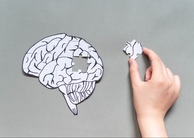PsychologyChange Blindness: The Influence of Positive Mood on Change Detection in Visual ScenesEmily Wang - Change blindness is the finding that people often fail to notice substantial changes between different views of a visual scene. The current study investigated the effect of mood states on people’s ability to detect changes, by comparing participants’ performance... Keep Reading »
Guns and Suicidal Thoughts in Adolescence: An Understudied RelationshipMax Gonzalez Saez-Diez - The prevalent school of thought states that suicidal ideation and suicide planning are not associated with living in households with firearms. Using data from the National Longitudinal Study of Adolescent to Adult Health (Add Health) in the years 1994 and 1995, I use... Keep Reading »
Pathological Withdrawal Syndrome: A New Kind of Depression?Katelynn V. Healy - Marion Godman makes the argument that Pathological Withdrawal Syndrome (PWS) makes the case for psychiatric disorders as a natural kind. Godman argues that we can classify kinds according to their shared ‘grounding’, but we need not know what the grounding... Keep Reading »
The Relationship Between Stress, Coping Strategies, and Problem-Solving Skills Among College StudentsBrittany Draper - The study investigated stress, coping strategies, and problem-solving skills among college students. A total of 202 university students completed this study. The purpose of this study was to address gaps in the existing literature regarding stress, coping strategies... Keep Reading »
Emotion and Politics: How Strengths of Mind Relate to Political Attitudes in the United StatesVincent C. Patierno - Political polarization has been an increasingly salient point of discussion since the 2016 presidential campaign, the election of Donald Trump, and into today. Beyond emphasizing partisan and issue-based divides, scholars have identified emotion-based roots of polarization... Keep Reading »
All Psychology Articles (by date) |

























